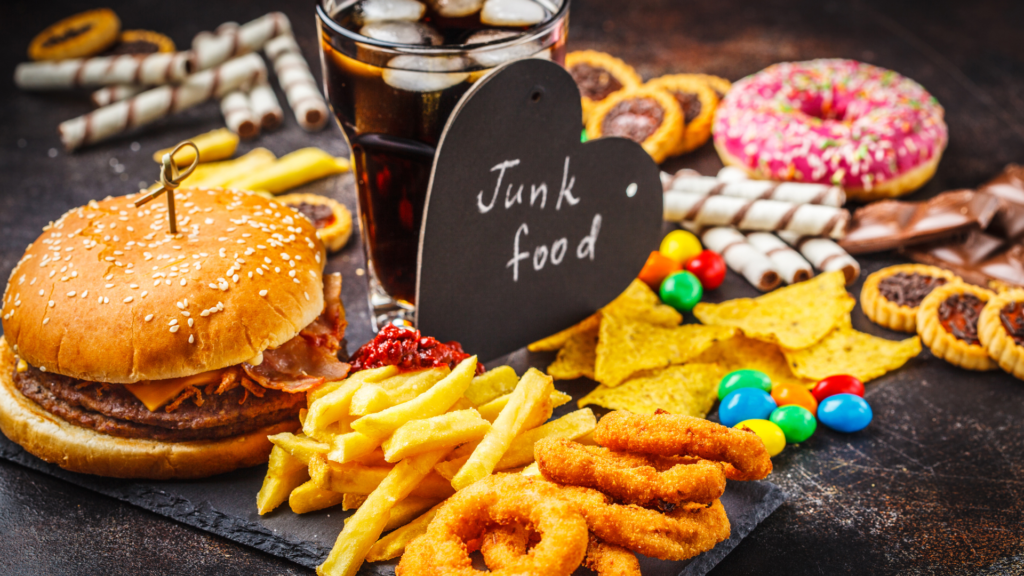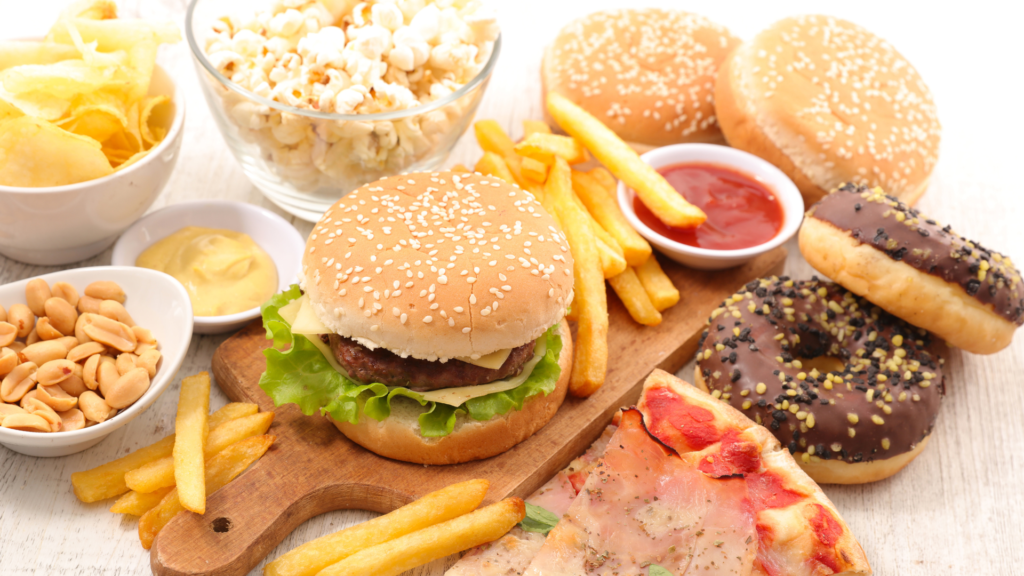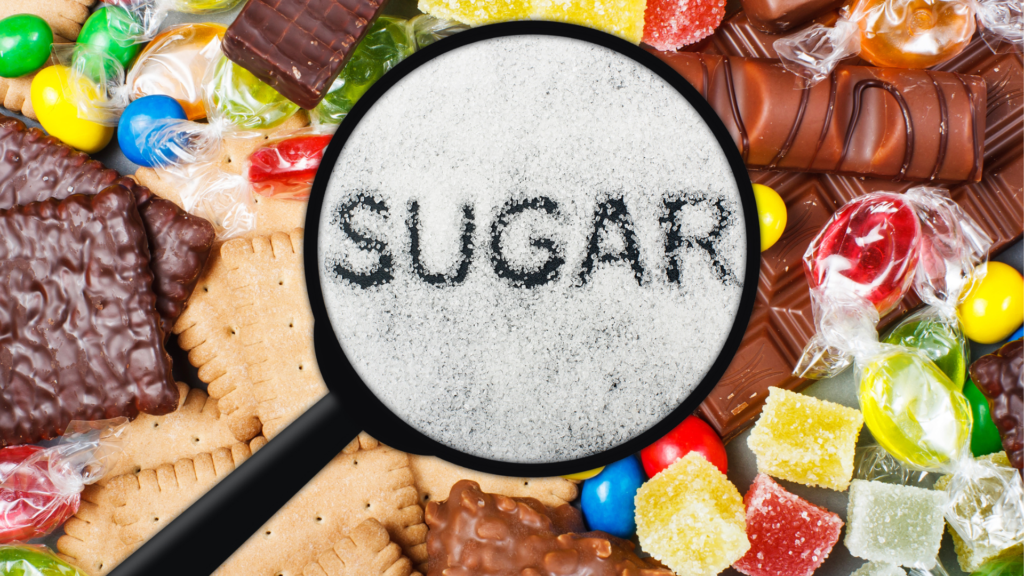junk food often celebrated for its convenience and instant gratification, harbors hidden costs that extend far beyond mere calorie counts. While the allure of a greasy burger or a sugary snack is undeniable, research increasingly connects these tantalizing treats to long term repercussions on mental health as well.

Effects of junk food on health
The impact of this food extends beyond mere weight gain, it influences our mental health and cognitive performance in unexpected ways. Diets high in processed sugars and unhealthy fats can lead to increased symptoms of anxiety and depression. The brain, often referred to as the body’s second gut responds dramatically to what we consume. Fast foods can create a cycle of cravings that not only affect mood but also impair concentration making tasks that once felt effortless seem daunting.

Hidden sugars in junk food
Hidden sugars in this food are often the stealthy culprits behind our everyday cravings and health struggles. While we might reach for a “healthy” snack the fine print on the label can reveal shocking amounts of sugar that distort our perception of what we are really consuming. For instance, common snacks like flavored yogurts or granola bars can pack in more sugar than a candy bar contributing to energy spikes followed by crashes that leave us feeling sluggish and hungry for more.

Bad impact of junk food
It often seems convenient and tasty option, harbors consequences that extend beyond the immediate satisfaction of hunger. Consuming high quantities of processed foods packed with sugars, unhealthy fats, and artificial additives can lead to long-term health issues such as obesity, diabetes, and cardiovascular diseases. The repercussions are not solely physical; they infiltrate our mental well-being too. Studies suggest that diets rich in junk food may contribute to mood disorders like anxiety and depression due to their inflammatory effects on the brain.
Tips to reduce junk food
Reducing food waste is not only an environmentally conscious choice but also a great way to save money and enhance creativity in the kitchen. Start by embracing meal planning take a moment each week to map out meals using ingredients you already have. This doesn’t just minimize surplus buying but also encourages you to think outside the box transform last night’s leftovers into today’s lunch or incorporate wilting vegetables into vibrant soups or strifood.

Obesity And Weight Gain
Junk food, with its tantalizing flavors and enticing convenience, has woven itself into the fabric of modern life, often at a significant cost to our health. The relationship between junk food consumption and obesity isn’t just about calorie counts; it’s intricately tied to the way these foods alter our metabolism and hunger hormones. Many high-calorie snacks spike insulin levels, creating a cycle of rapid hunger that can lead to overeating. Furthermore, such foods often lack essential nutrients, causing cravings for more sustenance due to the body’s deficit in vitamins and minerals.
FAQs
1. What is considered junk food?
Junk food typically refers to foods high in sugars, unhealthy fats, and calories but low in essential nutrients. Common examples include chips, candy, fast food, and sugary beverages.
2. How does junk food affect mental health?
Consuming excessive junk food can lead to mood swings, anxiety, and depression due to its impact on brain chemistry and overall nutrition.
3. Can occasional junk food consumption be part of a healthy diet?
Yes, indulging in junk food occasionally can be acceptable as part of a balanced diet, provided you maintain moderation and prioritize nutritious meals the rest of the time.
Conclusion
In conclusion, the pervasive consumption of junk food poses significant risks to our health, contributing to a variety of chronic diseases such as obesity, diabetes, and heart conditions. The high levels of sugar, unhealthy fats, and sodium found in these foods can lead to long-term health consequences that extend beyond just weight gain.

